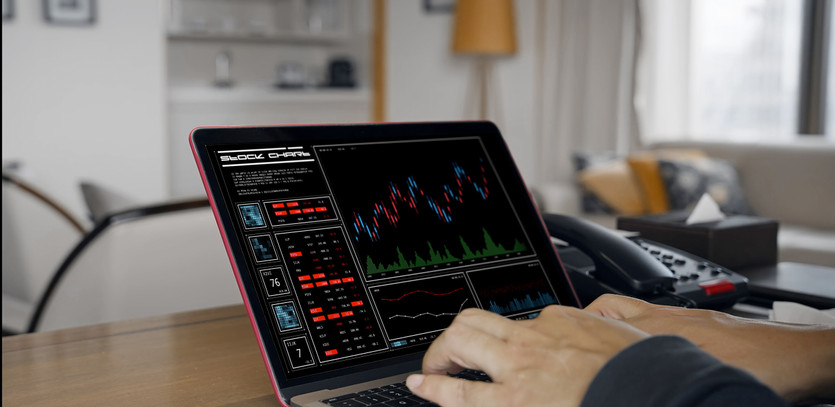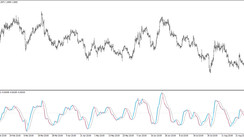Unearthing the Complexity of Day Trading
Day trading – an enthralling financial journey in which traders engage in the simultaneous buying and selling of stocks, currencies, or futures within the confines of a single trading day. An integral aspect of this practice is the closure of these trades before the market's end-of-day, making the decision to hold positions overnight one that requires meticulous thought and precise consideration.
There's an allure to holding trades beyond the day, whether to amplify earnings or temper the sting of a losing position. But caution is key, for maintaining overnight day trading positions can be a high-risk endeavor, despite the occasional strategic advantages. Let's journey into the labyrinth of overnight position holding in day trading.
Delving Deeper: Key Considerations for Overnight Position Holding
Unraveling the complexities of day trading requires a careful dissection of the most critical factors that influence overnight position holding. Let's take a closer, more detailed look at the elements to ponder:
-
The Gambit of Holding Overnight: Engaging in overnight holds in day trading is akin to tiptoeing along a precipice. Although the potential for significant gains can be tantalizing, the risks tied to such strategies are equally substantial. The volatility and unpredictability of the financial markets make overnight holds a high-stakes gambit that requires clear-eyed, informed judgment.
-
Knowing When to Fold: In the complex game of day trading, knowing when to bow out is as crucial as knowing when to participate. Even when faced with a losing trade, the optimal move is often to retreat, close the position, and realign for the next trading day. The idea is simple, yet potent - it's usually better to minimize losses today and start afresh tomorrow. A clear, fresh slate can pave the way for more informed, strategic trades.
-
Anticipating Overnight Shifts: As the world turns, so too do the financial markets. Numerous factors can drastically swing a stock's value while we sleep - from major global events to shifts in market sentiment. As such, the potential for significant loss is as looming as the promise of a big gain. It's imperative to appreciate this delicate balance and prepare for overnight shifts in the trading landscape.
-
The Exception Rather than the Rule: Yes, there are times when it may seem feasible or even advantageous to hold day trades overnight - certain forex trades may present as tempting examples. However, these instances should be treated as exceptions to the rule. As a fundamental guideline, day trades are best confined to the day's trading horizon. This approach helps maintain the integrity of the day trading strategy while mitigating undue risk.
Taking these factors into account can help day traders navigate the labyrinth of overnight position holding with a more informed, strategic approach. Armed with these insights, you're better positioned to weave your own successful tapestry in the intricate realm of day trading.
What to Weigh Before Holding a Position Overnight
Before you consider holding a position overnight, it's essential to take a step back and weigh the multiple elements that can significantly influence your decision. Here's a detailed exploration of these crucial factors:
-
Risk and Risk Management: The art of trading is intertwined with the science of risk management. The overnight market moves with its own rhythm, driven by an array of factors ranging from corporate earnings reports to geopolitical events. Assessing the potential risk and having a robust risk management plan in place is the bedrock of successful trading.
-
Capital Cost: The decision to hold a position overnight is not without financial implications. The capital cost associated with keeping the position open can affect your trading balance, making it vital to consider the financial dynamics before proceeding.
-
Leverage Alterations: Day traders often leverage their positions to amplify potential profits. However, leverage can change significantly when a position is held overnight, potentially affecting your buying power. Understanding these changes in leverage is key to effective overnight trading.
-
Strategic Reasoning: The rationale for holding a position overnight should always be strategically sound. Is there a significant event occurring after market close that you expect to impact the trade? Or, are you simply hoping that a losing trade will turn around? Ensuring a strategic reason for the overnight hold can shield you from unnecessary risk.
Understanding these factors is instrumental in making informed decisions about overnight position holding. Each aspect contributes to the larger narrative of your trading journey and can potentially impact your trading outcome. A keen eye on these dynamics will help ensure you stay on the right course in your trading voyage.
Formulating Successful Day Trading Strategies
Champion day traders formulate distinct parameters dictating when they trade, how they'll secure profits, and when they'll acknowledge losses. These parameters often encompass:
- Stop-loss orders: These automatic orders limit loss by selling a security when it reaches a certain price.
- Trailing stops: They protect gains by enabling a trade to remain open and continue to profit as long as the price is moving in a favorable direction.
- Profit targets: These predetermined points signal the trader to cash in before the market reverses.
If these orders remain unexecuted by day's end, the position is closed manually.
Managing Losses and Sealing Profits
Day trades spiraling into loss should not bleed into the next day. Embrace the loss and approach the next day with renewed vigor. Holding a losing day trade after market hours is akin to rolling the dice in a high-stakes gamble, exposing you to new layers of uncertainty.
Conversely, if your sights are set on amplifying profits from a day trade by an overnight hold, you're still gambling. The dynamics could radically change after market hours, potentially transmuting gains into losses. Close profitable trades, seal the earnings, and embark on the next day's trading journey afresh.
Note: Few circumstances justify holding a trade overnight unless you're compelled due to a trading halt or a liquidity crunch.
Navigating the Risk Labyrinth: Overnight Stock, Forex, and Futures Trades
Delving into the intricacies of overnight trading means navigating through a labyrinth of potential risks. Different markets - stocks, forex, and futures - present unique challenges that need to be expertly managed. Let's embark on this journey:
-
Stock Trading Nightmares: The overnight stock market is a beast of its own. The shift in leverage requirements, possible borrowing costs, and liquidity variations, all add to the complex equation of overnight trading. Add to this the unpredictability of news events impacting the stock, and we see a hazardous landscape unfold. Gaps in trading can sometimes work to a trader's advantage, but the risk of an adverse price gap is a significant concern.
-
The 24/7 Forex Market: The forex market never sleeps - it’s a global playground that functions around the clock. Despite this, price gaps, and the possibility of random sharp movements during low volume periods pose their own risks. Therefore, timing your trades to coincide with active trading periods and crucial economic data releases is a savvy strategy.
-
Futures Trading Pitfalls: The futures market is a hybrid arena that presents its unique set of challenges. The change in day trading margins and the potential for news-triggered price gaps make overnight futures trading a high-risk endeavor. A keen eye on the market dynamics and a well-thought-out trading strategy can help alleviate these risks.
The Crux of the Matter
At the heart of the overnight trading conundrum, there lies a simple truth: day trades are ideally meant to be just that - trades within a day. The allure of potential profits may entice traders to hold positions overnight, but the stark reality is that this strategy can often result in increased risk and possible losses.
-
Holding onto a losing trade overnight, hoping it will turn profitable the next day, is a perilous gambit. It's crucial to recognize that taking a loss and starting afresh the next day is often the most strategic move.
-
Chasing after additional profits by holding a winning day trade overnight also presents its risks. Market conditions can change drastically after the closing bell, potentially turning your gains into losses.
-
Unless a trade was initially planned to span over a few days to a few months (like swing trades), it's prudent to close it during the same trading day.
Finally, it's essential to remember that trading is a complex endeavor, filled with ups and downs, triumphs, and setbacks. It requires a steadfast commitment to learning, analysis, and strategy execution. By arming yourself with these insights and implementing them in your day trading strategies, you are well on your way to navigating the fascinating world of financial markets with increased confidence and success.





